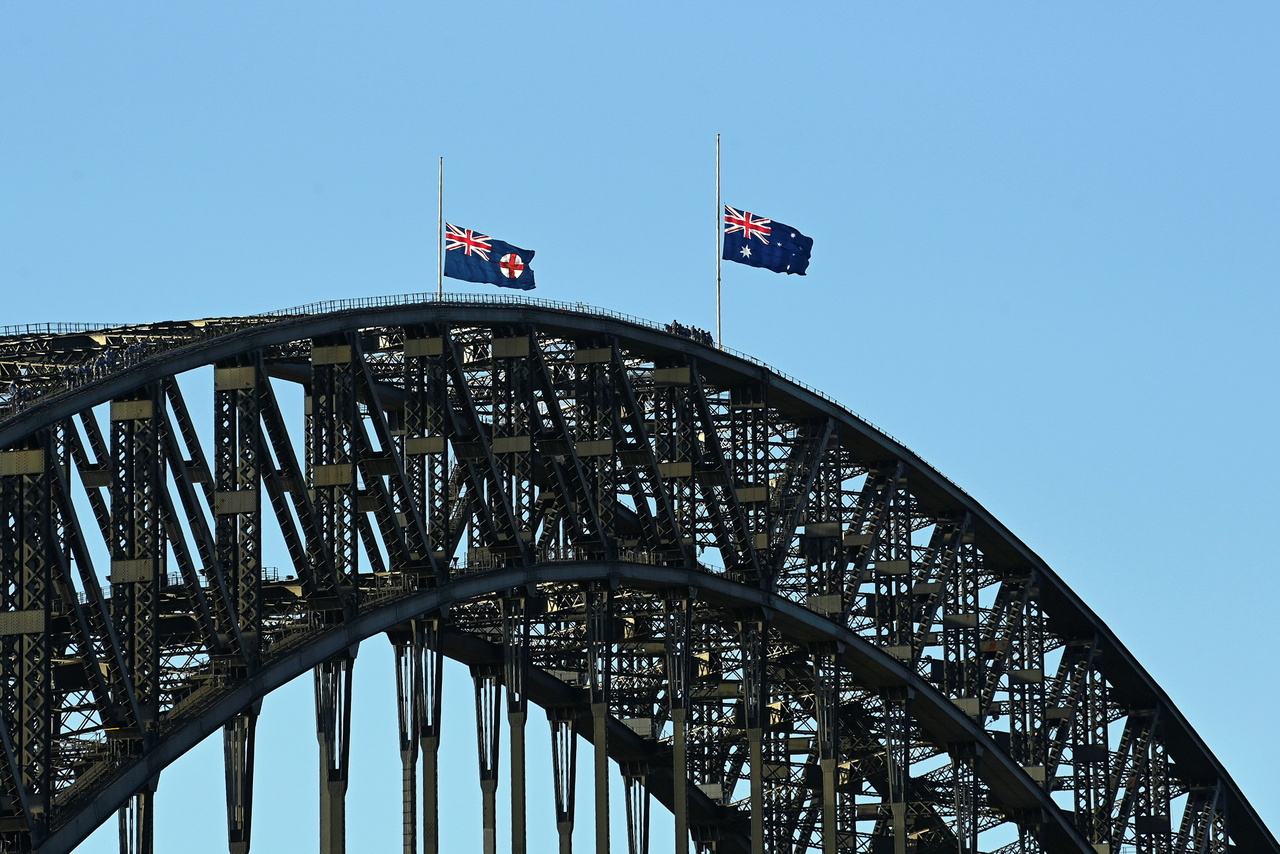Australia, New Zealand disagree over role of Five Eyes intelligence pact as China tensions grow
Sign up now: Get insights on Asia's fast-moving developments

Australia has reportedly pushed for the Five Eyes agreement to expand to address economic cooperation.
PHOTO: REUTERS
SYDNEY - For more than 50 years, Australia and New Zealand have belonged to an intelligence alliance with the United States, Britain, Canada - called the Five Eyes - which emerged during World War II.
In recent months, China's growing influence and clout has led to calls for the alliance to expand its focus beyond spying and to become a wide-ranging grouping of democracies that could push back against Beijing.
Australia has been quietly supportive of such moves, particularly as it has been a prominent target of Chinese economic coercion. In the past year, China has imposed tariffs and bans on about A$20 billion (S$20.6 billion) worth of Australian exports such as coal, wine and barley following rising tensions between the two nations over issues that include Canberra's foreign influence laws and its push for an inquiry into the origins of Covid-19.
But Australia recently discovered that its support for a greater role for the Five Eyes alliance is not shared by its close neighbour and friend, New Zealand.
Australian officials were reportedly surprised by statements by New Zealand's Foreign Minister, Ms Nanaia Mahuta, who rejected moves to expand the Five Eyes alliance's remit.
Ms Mahuta said that New Zealand wanted the alliance to limit its focus to intelligence and had raised its concerns with its other alliance partners.
"We are uncomfortable with expanding the remit of the Five Eyes relationship," she told reporters.
"We would much rather prefer to look for multilateral opportunities to express our interests on a number of issues."
The remarks led some commentators in Australia to describe New Zealand's Ardern government as weak and unwilling to stand up to China.
Former Australian foreign minister Alexander Downer criticised New Zealand for "downgrading" its role in the Five Eyes alliance while upgrading its free trade deal with China in February despite Beijing imposing sanctions on Australia. "Used to be our best mates. Not now," he wrote.
An editorial in The Australian newspaper accused New Zealand of a "blatant attempt to curry favour with China".
"At a time of increasing strategic tensions as China asserts its influence in the South China Sea and across the Pacific, strong alliances, such as the Five Eyes intelligence network, have never been more important," the newspaper said. "Playing up differences of opinion between alliance members suits only one nation - China."
Both Canberra and Wellington have since attempted to play down the dispute.
New Zealand's Prime Minister, Ms Jacinda Ardern, said she supported efforts to publicly oppose China on issues such as the treatment of the Uighurs in Xinjiang or curbs on democratic freedoms in Hong Kong.
"We should be banding together where we see issues globally that don't align with our shared values," she said. "The point our Foreign Minister has rightly raised is - is this best done under the banner of a grouping of countries around a security intelligence platform, or is it best done under the banner of a group of countries with shared values, some of which may not belong to the Five Eyes partnership?"
But the disagreement also reflects broader differences between New Zealand, which tends to adopt a more independent-minded foreign policy, and Australia, which tends to more closely align with Washington.
New Zealand, for instance, unlike Australia, has joined China's infrastructure-building Belt and Road Initiative (BRI). In contrast, Australia's federal government has not only refused to join the BRI but recently cancelled two BRI agreements between the state of Victoria and China - a move that further infuriated Beijing.
Australia has reportedly pushed for the Five Eyes agreement to expand to address economic cooperation.
The Five Eyes partners have also been eyeing the possibility of bringing in Japan as the first new member since Australia and New Zealand joined in 1956.
Japan's Ambassador to Australia, Mr Shingo Yamagami, told The Sydney Morning Herald last week that he "would like to see this idea become reality in the near future".
New Zealand's reluctance to expand the Five Eyes has reportedly led to joking descriptions of the grouping in Canberra as the Four Eyes. But Tokyo's enthusiasm may avoid the need for a name change, even if Wellington's commitment wavers.


